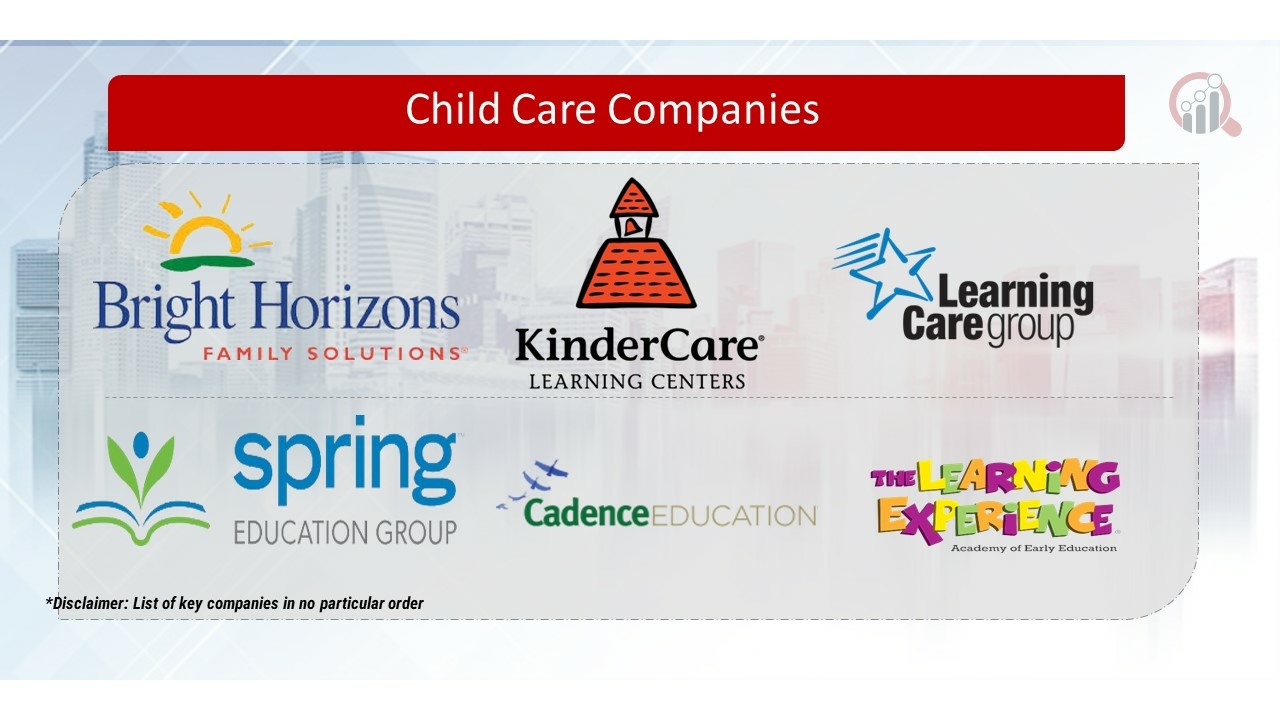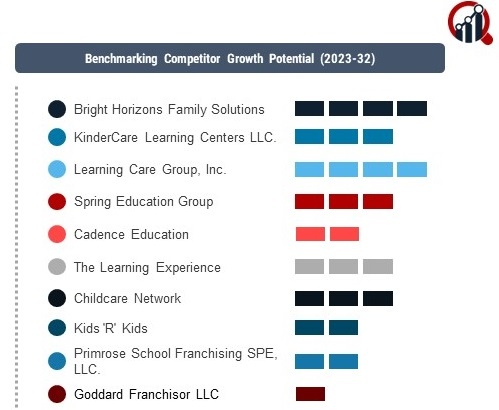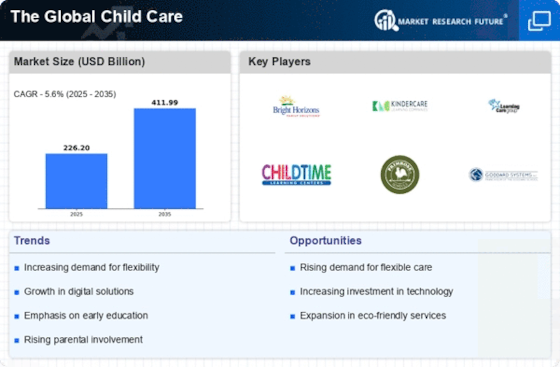Top Industry Leaders in the Child Care Market

To maintain their competitive edge, companies in the child care market employ various strategies. These strategies often revolve around enhancing the quality of care, expanding service offerings, and improving operational efficiency. For example, some companies invest in curriculum development to differentiate their educational programs, while others prioritize technology adoption to streamline administrative tasks and improve communication with parents. Furthermore, strategic partnerships with employers or government agencies enable companies to access new markets and secure funding or subsidies for families in need.
Market share analysis in the child care industry is influenced by several factors. Quality of care, affordability, location convenience, and reputation are primary determinants of consumer choice. Companies that excel in these areas tend to capture a larger share of the market. Additionally, regulatory compliance and adherence to licensing standards play a crucial role in building trust among parents and gaining market share. Companies with a strong focus on employee training and development also tend to deliver superior service quality, contributing to their competitive position.
Amidst the established players, new and emerging companies are entering the child care market, driven by changing consumer preferences and technological advancements. Startups such as Wonderschool and WeeCare are disrupting the traditional childcare model by offering innovative solutions that emphasize flexibility, affordability, and personalized care. These companies leverage digital platforms to connect parents with licensed caregivers or provide alternative childcare options, such as in-home daycare or shared childcare arrangements. As these startups gain traction, they pose a growing threat to established players and contribute to the competitive dynamics of the market.
Industry news and current company investment trends reflect the evolving landscape of the child care market. Increasing awareness of the importance of early childhood education and development has led to rising demand for high-quality childcare services, driving investment in this sector. Venture capital firms and private equity investors are actively backing childcare startups and established companies alike, fueling expansion efforts and technological innovation. Moreover, strategic acquisitions and partnerships are reshaping the competitive landscape as companies seek to strengthen their market position and gain access to new markets or capabilities.
Overall, the competitive scenario in the child care market is characterized by intense rivalry among a mix of established players, startups, and independent providers. Key players differentiate themselves through quality of care, service offerings, and brand reputation, while new entrants disrupt the market with innovative solutions and digital platforms. Market share analysis is influenced by factors such as service quality, affordability, and regulatory compliance, with consumer preferences driving purchasing decisions. Investment trends indicate growing interest from investors in this sector, underscoring the potential for continued growth and innovation in the child care market.
Child Care Industry Developments
June 2020:
Big Fat Smile, a leading care provider, and Goodstart Early Learning, Australia's largest early learning and childcare firm, combined.
Key Companies in the Child Care Market Include –
- Bright Horizons Family Solutions
- KinderCare Learning Centers LLC.
- Learning Care Group, Inc.
- Spring Education Group
- Cadence Education
- The Learning Experience
- Childcare Network
- Kids 'R' Kids
- Primrose School Franchising SPE, LLC.
- Goddard Franchisor LLC











